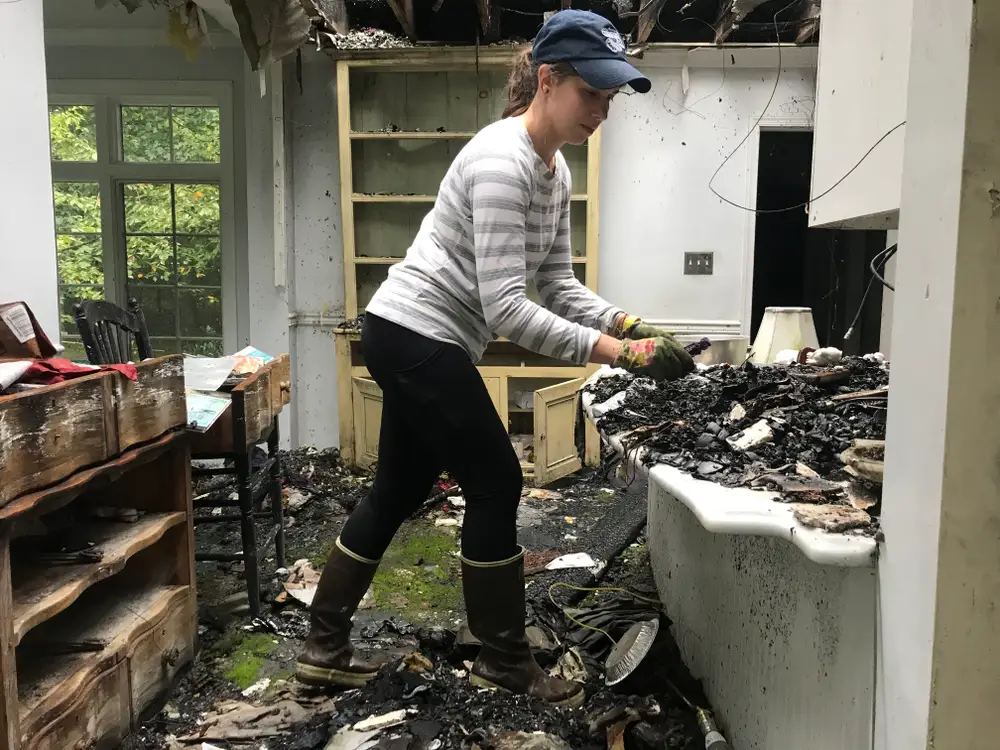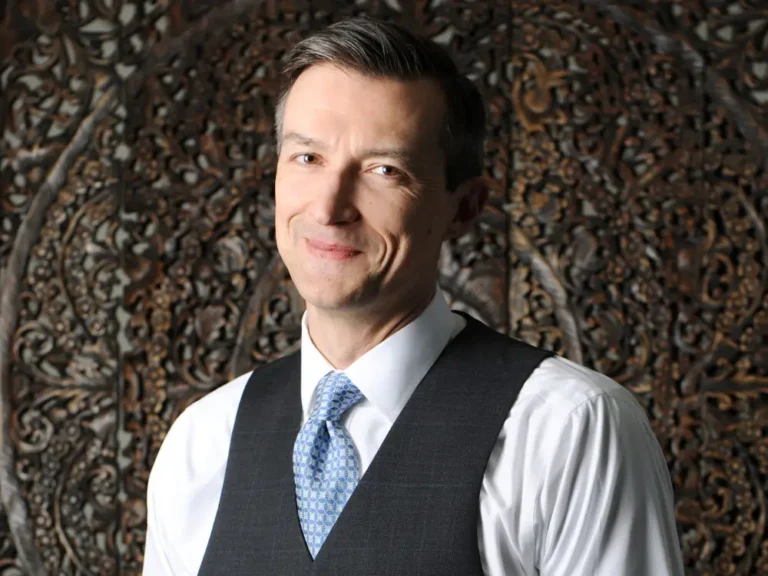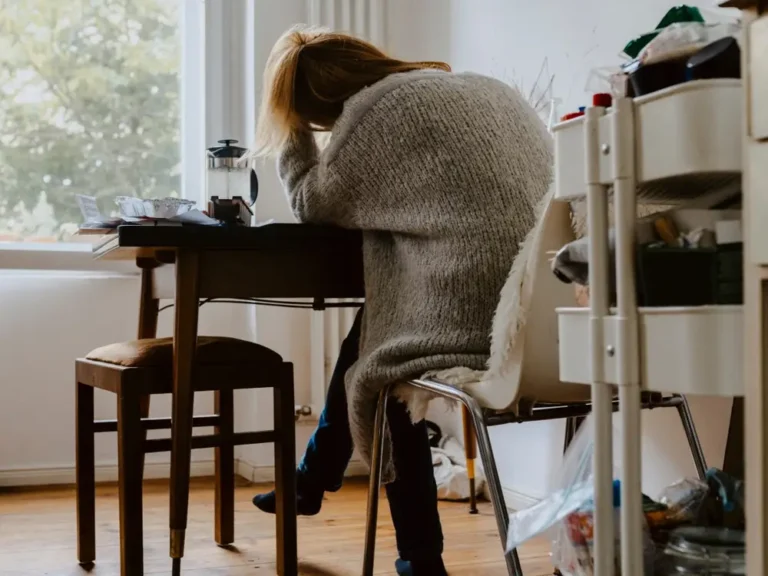I’ve always had a hard time decluttering. When my childhood home burned down, I learned a lot about letting go.

Allison Young’s childhood home burned down in a house fire.
As the quintessential pack rat, I perpetuated the cycle of accumulating without decluttering. It’s been going on for about as long as I can remember.
My closet brimmed over with bags of clothes I planned to try on once I lost those last five pounds. Old paint tubes from a freshman college class took up precious real estate on my desk, reminding me to eke out one more painting one day. I even kept dried roses from a bouquet I made as a florist. You’d think I was preserving precious relics by hanging onto these dried blooms that were more dust than flower. I became excellent at Tretis-ing miscellany in every nook and cranny of my home.
When the ambitious fervor to declutter arose, I struggled to determine what sparked joy and what to part with. I knew I’d feel calmer and freer if I cleared out the clutter, yet when facing all my stuff, I felt paralyzed.
I was constantly waffling when trying to decide what to get rid of. What if I actually needed the torn tote bag that I might mend someday? And I might regret giving up that T-shirt from Grandpa, even though it doesn’t fit. Finally, how wasteful would I be to throw away this face moisturizer before it’s completely gone? The inner turmoil was a battle between absurdity and prudence.
Then, on a blustery evening in March, a rogue spark set my childhood home ablaze.
Suddenly, all of that stuff was gone
Flames rained down from an HVAC vent. After calling 911 and alerting my dad outside, I ran back in to retrieve our pet rabbits. The fire had already eaten up half the roof. I ran out of the house without shoes. The sudden, violent alchemy of the fire had reduced our home — and its 40 years of memories — to charred rubble. By the time the last fire truck rolled out of our driveway, all that stuff I’d accumulated was gone.
The day after the fire, I feebly began replacing some of what we’d lost. With the generous help of a gift card from my boss and coworkers, I could afford some basics. Disheveled, smelling of smoke, and tears streaking my face, I shuffled down the Target aisles. Waves of grief and anguish hit me as I bought pet supplies, underwear, and shoes. The sudden scarcity brought my life’s inventory into heightened focus.
That scarcity was also met with overwhelming support. Friends, neighbors, and even strangers brought us home-cooked meals, clothes, furniture, and bedding. After losing years’ worth of writing, dear friends and family gave me new journals. Family members mailed me books, paint brushes, and blank pages to fill up. Even now, it’s hard to articulate the feeling of whiplash: the sadness of loss and displacement extinguished by immense generosity and gratitude for the care of our community.
From the rubble, I learned a few lessons
As fast as our home burned down, the recovery is glacial in its pace. Every day my mom and I suddenly remember something we lost. I collect receipts for what I’ve replaced, and painstakingly assess how not to perpetuate my cycle of accumulating without decluttering. The fire has confronted me to break this cycle.
We cling to our earthly possessions for many reasons: a scarcity mindset, an emotional attachment, or even the simple comfort of having familiar things that make us happy. With each reason, countless articles and tidying experts offer tips and services for clearing away the minutia. No one needs (or deserves) a house fire to clean out their closet. It’s painful, strange, and sad. But grief often comes with lessons.
The fire’s forced reset has me reflecting on what it takes to let go. Instead of seeking satisfaction in a clean closet or curating a room in a minimalist style, I’m making room to understand my reasons to cling to the stuff of life. Facing loss and grief with acceptance makes room to cultivate trust in oneself. It makes room for resilience and resourcefulness.
If I could offer advice to someone struggling to declutter, it might be this: Instead of thinking about how you might regret parting with that clothing, appliance, or sentimental object, consider what you might gain from letting go. What will you make room for next?






